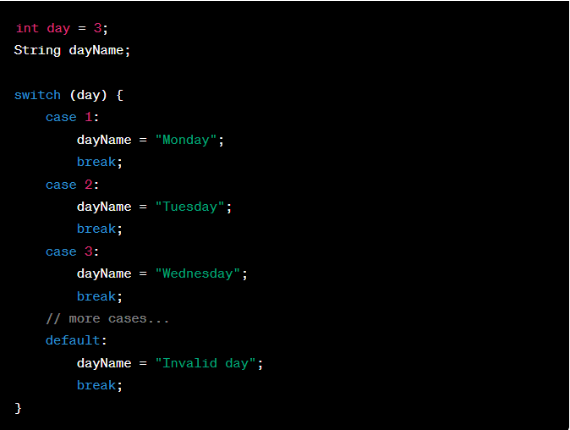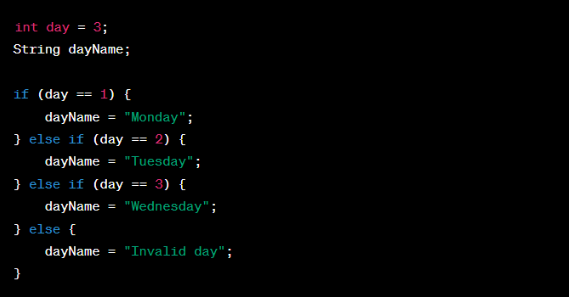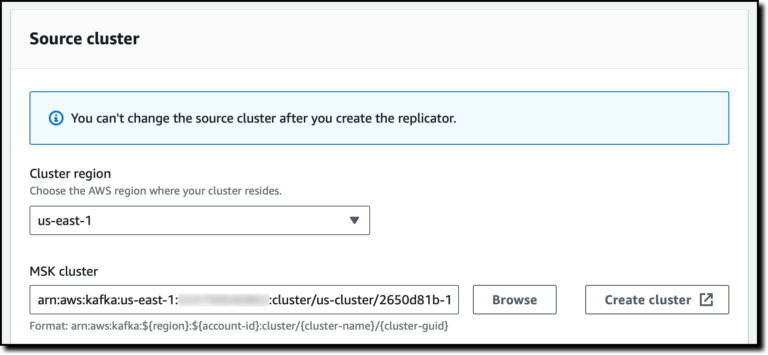Programming often involves decision-making processes where certain conditions determine the flow of actions within a program. Developers rely on various constructs to manage these conditions effectively. Two primary conditional constructs used in programming languages like Java are the switch statement and the if-else statement. Both serve similar purposes but have distinct use cases and efficiency implications.
What is Switch Case in Java?
The switch statement in Java allows for multiple possible execution paths based on the value of a variable or expression. It evaluates the value of an expression and matches it with specific cases to execute the corresponding block of code. Here’s a basic syntax example:

On the other hand, the if-else statement checks multiple conditions and executes a block of code if the condition is true. It’s structured as follows:

Use Cases: When to Use Switch Case for Better Code Efficiency
1. Multiple Conditions
Switch Case: The switch statement works efficiently when there are multiple conditions to evaluate based on a single variable or expression. It provides a cleaner and more readable approach than chaining multiple if-else statements, especially when dealing with a large number of cases.
If-Else: While if-else statements can handle multiple conditions, they become less readable and maintainable as the number of conditions increases. Nesting numerous if-else blocks might result in code that is hard to follow and prone to errors.
2. Single Value Checks
Switch Case: It is suitable for checking a single value against multiple cases. The switch statement directly matches the value to the respective case, enhancing code readability and reducing complexity.
If-Else: if-else statements are flexible for evaluating multiple conditions based on various expressions or boolean values. They are effective when handling complex conditions involving logical operators.
3. Constant Expressions
Switch Case: Java’s switch statement efficiently handles constant expressions. It compiles into more optimized bytecode when the cases are constant values (e.g., integers, characters, or enumerated types).
If-Else: While if-else statements are versatile, they might not offer the same level of optimization for constant expressions as the switch statement does.
4. Range Checking and Complex Conditions
If-Else: When dealing with range checking or intricate conditions that can’t be directly matched with case values, if-else statements provide more flexibility. They allow developers to use relational operators and custom logic to handle complex scenarios effectively.
Switch Case: The switch statement doesn’t support range checks directly. Each case in a switch statement needs to match exact values, limiting its use in scenarios requiring range evaluations or intricate logical conditions.
5. Efficiency Considerations
Switch Case: The switch statement’s efficiency often comes from its optimized bytecode generation for constant expressions and cleaner code representation. When the number of cases is significant and the conditions match constant values, the switch statement can result in faster execution.
If-Else: if-else statements are generally efficient for handling smaller sets of conditions or scenarios where conditions involve ranges or complex expressions. They offer more flexibility but might lead to less optimized bytecode compared to the switch statement, especially when dealing with constant values.
Final thoughts
The choice between switch and if-else statements in Java often depends on the specific use case and the nature of the conditions. When dealing with a limited number of constant values and seeking cleaner, more structured code, the switch statement proves to be a better choice, enhancing readability and potentially improving efficiency. However, for complex conditions, range evaluations, or scenarios requiring more flexibility, if-else statements offer better-suited alternatives.
Understanding the strengths and limitations of each construct allows developers to make informed decisions, ultimately leading to code that is not only efficient but also maintainable and easy to comprehend. Switch Case in Java provides a valuable tool for handling multiple conditional branches efficiently, offering a structured approach in scenarios that align with its capabilities. Nonetheless, developers should always consider the specific requirements of their code to determine which conditional construct best suits their needs.
In case you have found a mistake in the text, please send a message to the author by selecting the mistake and pressing Ctrl-Enter.






